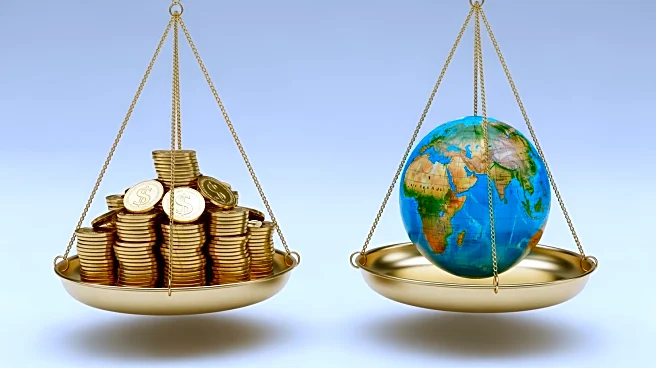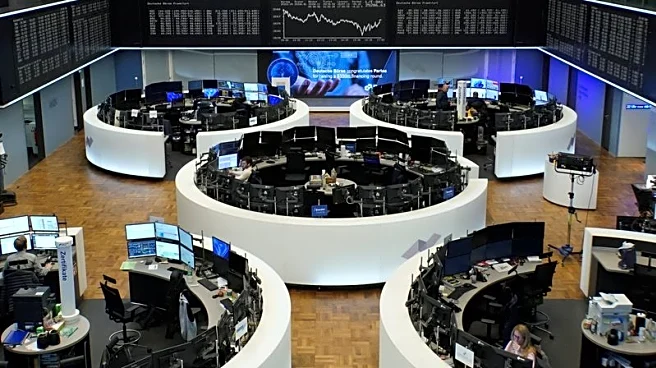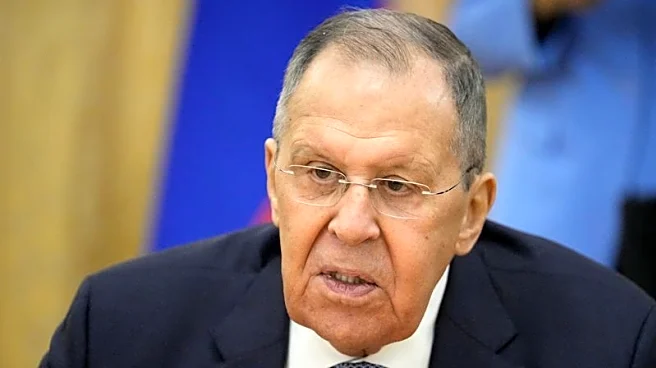What's Happening?
A panel of experts, led by Nobel Prize-winning economist Joseph Stiglitz, has issued a warning about a global 'inequality emergency' as the wealthiest individuals prepare to pass down over $70 trillion
to their heirs in the next decade. This transfer of wealth is expected to perpetuate the divide between economic elites and the rest of the population. The report, published ahead of the G20 meetings in Johannesburg, highlights that since 2000, the global 1% has captured more than 40% of all new wealth, while the bottom half of humanity saw its wealth grow by just 1%. The panel, known as the Extraordinary Committee of Independent Experts on Global Inequality, includes members from various countries and emphasizes that inequality results from policy choices and is a global concern that should be addressed by international bodies like the G20.
Why It's Important?
The report underscores the urgent need for policy changes to address income and wealth inequality, which undermines social cohesion, economic functioning, and democratic institutions worldwide. The panel recommends fair taxation of multinational corporations and ultra-rich individuals, antitrust policies to reduce corporate concentration, and major investments in public services. The creation of an International Panel on Inequality is proposed to provide authoritative assessments and analyses of inequality, empowering policymakers with accurate information. This initiative is inspired by the success of the Intergovernmental Panel on Climate Change (IPCC) in addressing climate issues, suggesting a similar approach could be effective in tackling inequality.
What's Next?
The panel's recommendations call for concerted action from policymakers, political leaders, the private sector, journalists, and academia to address the inequality crisis. The proposed International Panel on Inequality aims to bring together technical expertise worldwide to track inequality and assess its drivers, providing a foundation for informed policymaking. As the G20 meetings approach, these recommendations may influence discussions and decisions on global economic policies, potentially leading to significant shifts in how wealth and income inequality are addressed on an international scale.
Beyond the Headlines
The ethical dimensions of inequality are highlighted in the report, emphasizing that policy choices reflect moral attitudes and economic trade-offs. The panel's call for an International Panel on Inequality suggests a long-term shift towards more structured and informed approaches to tackling inequality, similar to the global efforts seen in climate change initiatives. This could lead to a more coordinated and effective response to inequality, with implications for global economic stability and social justice.










